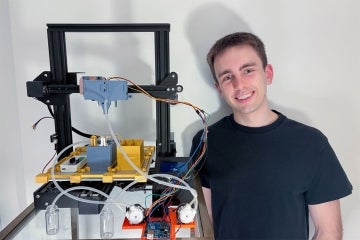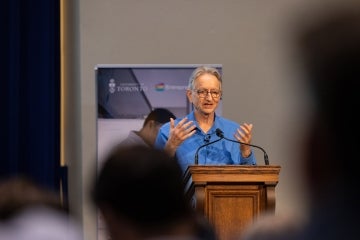Police should never have power to tap journalists' phones, says U of T’s Jeffrey Dvorkin

Published: November 3, 2016
Canadian journalists and civil liberty advocates are outraged over revelations that various police forces in Quebec have been tracking the cell phones of local journalists.
Quebec provincial police admitted this week to police surveillance of six prominent journalists in 2013 as they tried to track down a person alleged to have leaked sensitive wiretap information involving a prominent labour leader. This followed revelations that Montreal police had been keeping tabs on the iPhone of a La Presse reporter, including tracking his whereabouts using his phone's GPS chip.
Today, the Quebec government announced a full public inquiry into the growing scandal, but critics are still concerned over what this means for freedom of the press.
U of T News spoke with Jeffrey Dvorkin, director of the journalism program at U of T Scarborough, about the controversy. He is a former vice-president of news for National Public Radio and a former managing editor with CBC Radio.
Why should Canadians care about this?
Canadians should care because access to journalistic work and “work product” (in other words, the stuff that doesn’t get into the final reporting) should always be obtained with a warrant. Secondly, the amount of information about all of us – journalists and non-journalists – should be an area of great concern. We are living in an age of transparency and a diminishing lack of privacy. Google through Gmail has forced us to surrender any concept of privacy. The police are only doing (illegally) what Google does with our permission.
Is it common for police to employ surveillance on journalists in Canada?
Probably more than we know. We should know what all levels of government are doing to know more about us. Sometimes being paranoid is the only rational response to the times we live in. When I was managing editor at CBC Radio in the '90s, we discovered that the Canadian military could tap our phones without a warrant. We got that changed. At least we hope we did...
What effect will these revelations have on investigative journalists in Quebec and elsewhere?
It will make journalists more cautious about what is said in supposedly private communications. My own hope is that journalists will not give up on investigative reporting. But instead of being overly dependent on Internet research, more face-to-face, “shoe-leather” reporting might be preferred in certain circumstances.
Are there any circumstances where police should have the authority to tap journalists’ phones?
Never. Not without a warrant. If ever there was an argument for more media lawyers, this is it.



